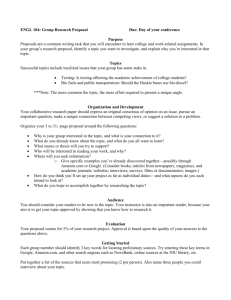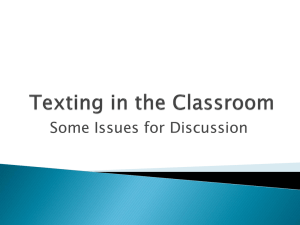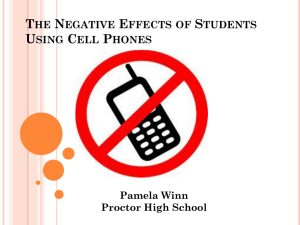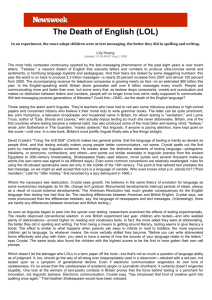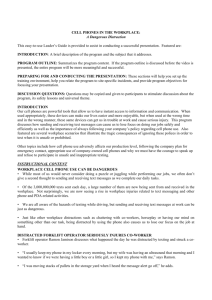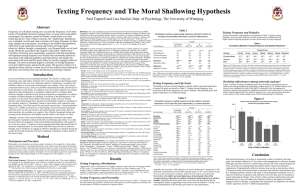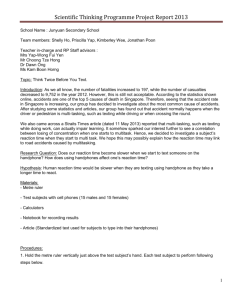Texting Lingo: The Next Malaria
advertisement
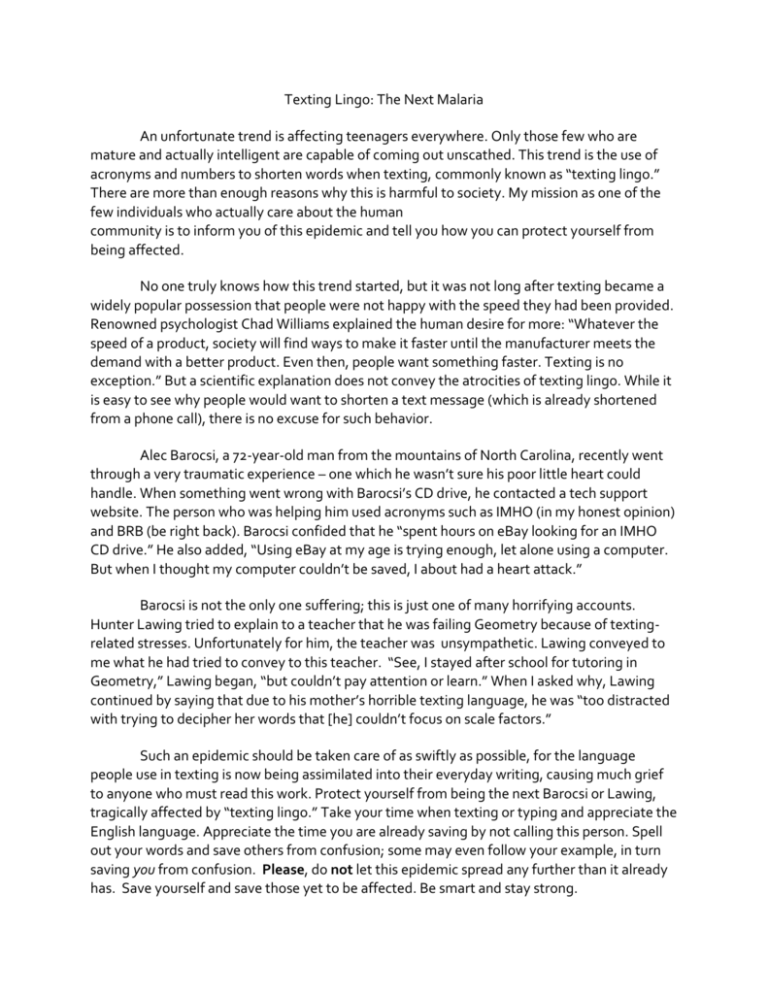
Texting Lingo: The Next Malaria An unfortunate trend is affecting teenagers everywhere. Only those few who are mature and actually intelligent are capable of coming out unscathed. This trend is the use of acronyms and numbers to shorten words when texting, commonly known as “texting lingo.” There are more than enough reasons why this is harmful to society. My mission as one of the few individuals who actually care about the human community is to inform you of this epidemic and tell you how you can protect yourself from being affected. No one truly knows how this trend started, but it was not long after texting became a widely popular possession that people were not happy with the speed they had been provided. Renowned psychologist Chad Williams explained the human desire for more: “Whatever the speed of a product, society will find ways to make it faster until the manufacturer meets the demand with a better product. Even then, people want something faster. Texting is no exception.” But a scientific explanation does not convey the atrocities of texting lingo. While it is easy to see why people would want to shorten a text message (which is already shortened from a phone call), there is no excuse for such behavior. Alec Barocsi, a 72-year-old man from the mountains of North Carolina, recently went through a very traumatic experience – one which he wasn’t sure his poor little heart could handle. When something went wrong with Barocsi’s CD drive, he contacted a tech support website. The person who was helping him used acronyms such as IMHO (in my honest opinion) and BRB (be right back). Barocsi confided that he “spent hours on eBay looking for an IMHO CD drive.” He also added, “Using eBay at my age is trying enough, let alone using a computer. But when I thought my computer couldn’t be saved, I about had a heart attack.” Barocsi is not the only one suffering; this is just one of many horrifying accounts. Hunter Lawing tried to explain to a teacher that he was failing Geometry because of textingrelated stresses. Unfortunately for him, the teacher was unsympathetic. Lawing conveyed to me what he had tried to convey to this teacher. “See, I stayed after school for tutoring in Geometry,” Lawing began, “but couldn’t pay attention or learn.” When I asked why, Lawing continued by saying that due to his mother’s horrible texting language, he was “too distracted with trying to decipher her words that [he] couldn’t focus on scale factors.” Such an epidemic should be taken care of as swiftly as possible, for the language people use in texting is now being assimilated into their everyday writing, causing much grief to anyone who must read this work. Protect yourself from being the next Barocsi or Lawing, tragically affected by “texting lingo.” Take your time when texting or typing and appreciate the English language. Appreciate the time you are already saving by not calling this person. Spell out your words and save others from confusion; some may even follow your example, in turn saving you from confusion. Please, do not let this epidemic spread any further than it already has. Save yourself and save those yet to be affected. Be smart and stay strong.
